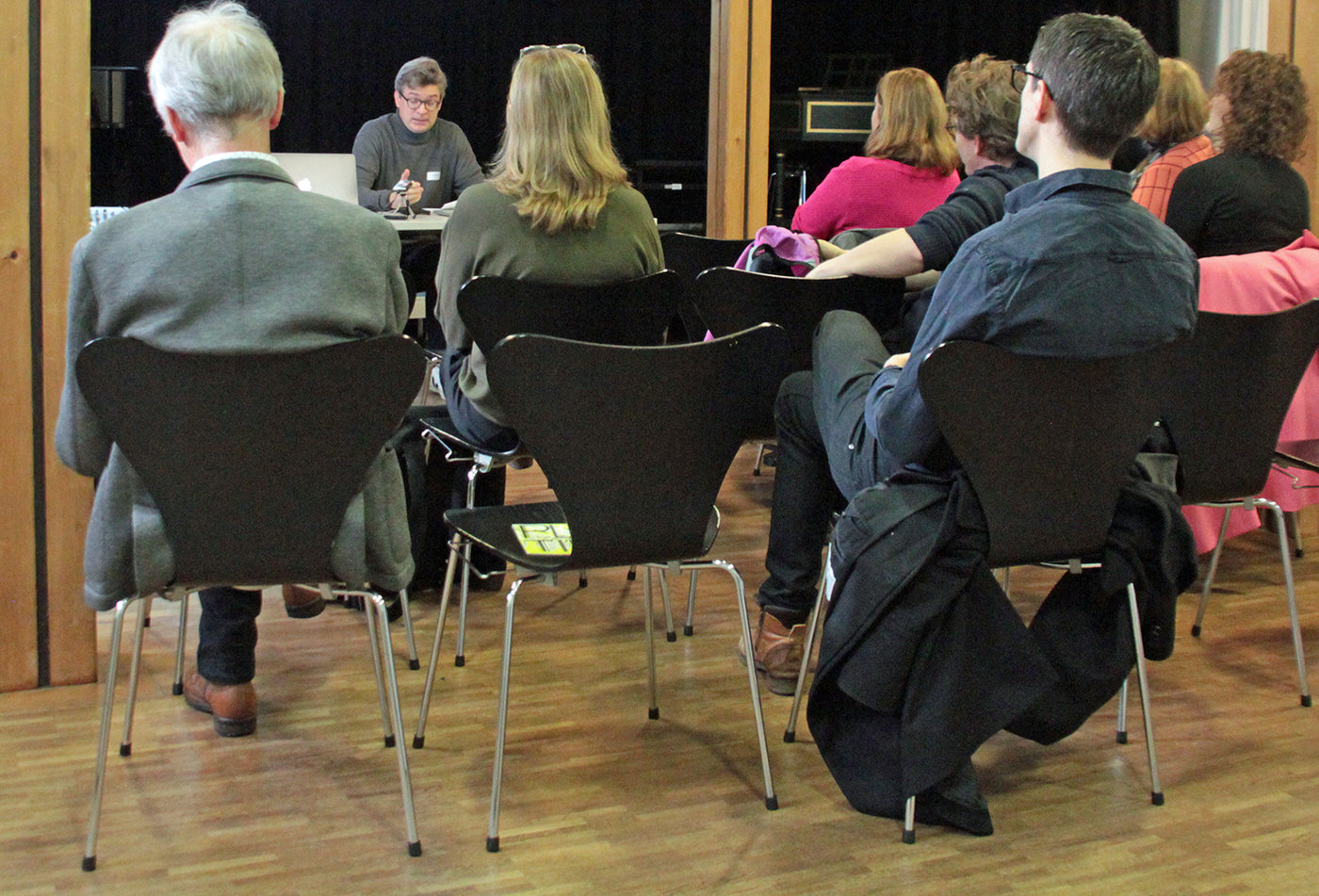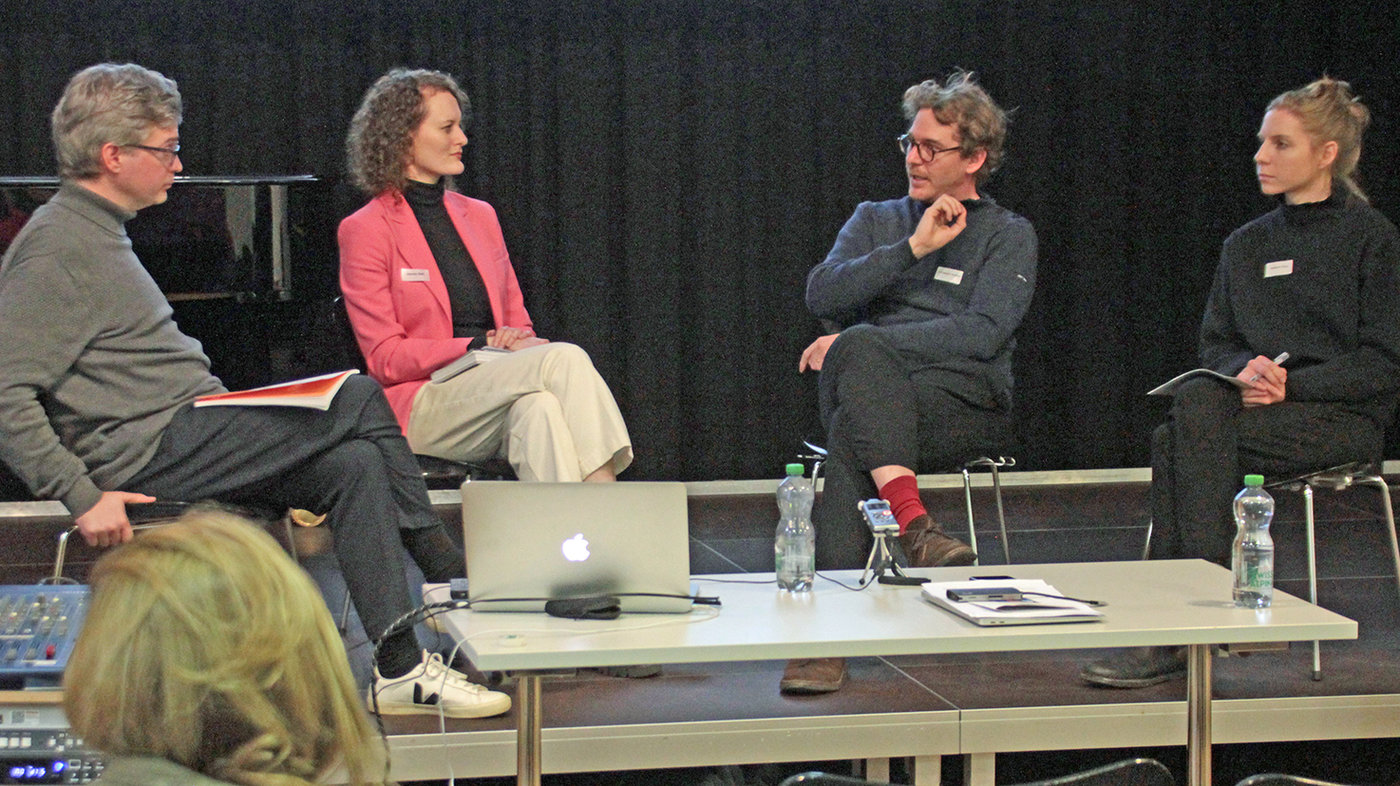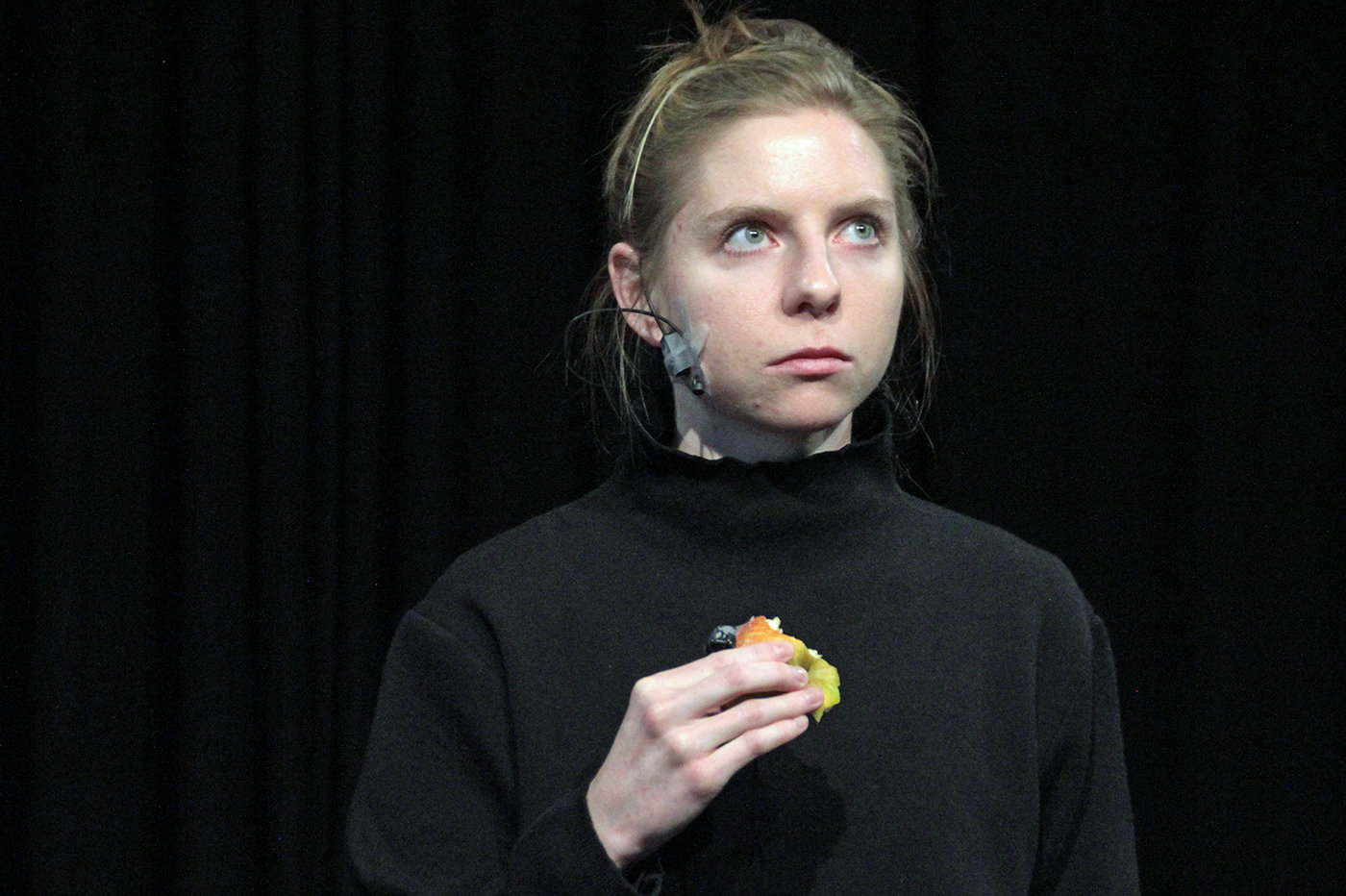"Hail to thee, Helvetia"
Swiss national consciousness is based on myths. A conference at the Bern University of the Arts asked what purposes they serve. Why they are sometimes shattered in art and science was only discussed in passing.

The woman is omnipresent. She adorns coins and stamps, sits enthroned as a statue on the front of the Federal Palace and appears in the former national anthem: It is the allegorical figure of Helvetia, the protector and mother of the Swiss Confederation. Our national consciousness is largely based on myths. The stories of William Tell, the cradle of democracy, the nation of will and neutrality are also myths. In the post-war period, but especially in the wake of the Sixty-Eight movement, these myths were critically scrutinized in art and science and often dismantled with relish.
Identity-building action
"Myth-busting: painful & pleasurable"was the motto of the conference held on January 23 at Bern University of the Arts. The occasion was the presentation of the publication Musicking Collective - Encodings of collective identity in contemporary music practice in Switzerland and its neighboring countrieswhich was created at Bern University of the Arts (HKB) as part of a National Fund project. The editors are the composer, director and musicologist Leo Dick, the composer and interpreter Noémie Favennec and the performer and music researcher Katelyn Rose King. The editors share the thesis that the essence of music is not primarily rooted in compositions, but in the collective action of individuals, with the term "musicking", which was adopted from the American musicologist Christopher Small. The practice of music thus has an identity- and community-building effect.
The contributions in this anthology deal with contemporary music theater, primarily in Switzerland, from the perspective of the construction and deconstruction of "we" identities. Thick himself states in his essay The shadow of Mother Helvetia two settings of Jeremias Gotthelf's novella The black spider contrast each other. In Heinrich Sutermeister's radio opera from 1934, the author recognizes the affirmative reflex of spiritual national defence, whereas in Rudolf Kelterborn's television opera from 1984, the critical debate in the wake of the youth riots in various Swiss cities.
Social criticism and dreams of the future
The other presentations at the Bern conference did not always focus on music. Heike Bazak, head of the PTT archives in Bern, deciphered the connection between the various iconographic representations of Helvetia on Swiss stamps and the respective zeitgeist. Historian Noëmi Crain Merz spoke about more recent women's movements in Switzerland and their approach to gender roles.
The contribution by ethnomusicologist and filmmaker Lea Hagmann took us back to music. She presented her documentary film Beyond Tradition: the power of nature's voices (2023), which she realized together with Rahel von Gunten and producer Thomas Rickenmann (Red. see movie report by Wolfgang Böhler). The Appenzell natural yodel and two comparable foreign traditions are documented. The two filmmakers were interested in the question of how such traditions could be combined with innovative approaches. It turned out that both the main actor and the producer were afraid of a possible "myth-busting". Against the backdrop of the conflict between art and commerce, the film ultimately became less socially critical than Hagmann would have liked.
Institutions and publications can also become myths. The Gare du Nord in Basel's Badischer Bahnhof, which opened in 2002, has achieved cult status. The curated production and performance venue for the contemporary Swiss (and international) music scene will have a new artistic director in summer 2024 in the form of composer and performer Andreas Eduardo Frank. In an interview with Leo Dick, the nominee outlined his ideas: Generational change among artists and audiences, structural changes and a pluralistic artistic approach. Frank could not be persuaded to be more specific despite questions.
Dissonances and partisans
The magazine "post festum", which was launched in 2018, has also become a myth. Dissonance/Dissonancethe leading medium for contemporary Swiss music production. The reasons for its demise were financial difficulties and differences of opinion between the editorial team and the sponsors. Like a phoenix rising from the ashes, the online platform Partisan Notes a new medium. The music philosopher Christoph Haffter, co-editor of the platform, and the musicologist Jasmin Goll provided information about the orientation of the new organ. It is not a direct successor publication to Dissonance/Dissonance. Because Partisan Notes is internationally oriented and is published in English. The platform stands for independence, aesthetic pluralism and taking sides for contemporary music that wants to face up to criticism. In addition to essays on various topics, the platform offers reports from workshops that are held with different contemporary music organizers. At the workshops, critics, composers and performers come into conversation with each other and "enlighten" each other.

In the ensuing discussion, there were predominantly critical voices: The Swiss scene was losing importance due to the international focus. The English language has lost the Dissonance/Dissonance The online medium has displaced the prevailing Swiss bilingualism of German and French. With the online medium, the sensuality of a physical publication is lost. And Partisan Notes is too aloof.
As a reconciliation and to round off the evening Katelyn King in Cathy van Ecks In paradisum for performer and live electronics with a witty performance. In the context of the conference theme, the apple-eating Eva could also be interpreted as a feminist reinterpretation of Tell's apple shot.








